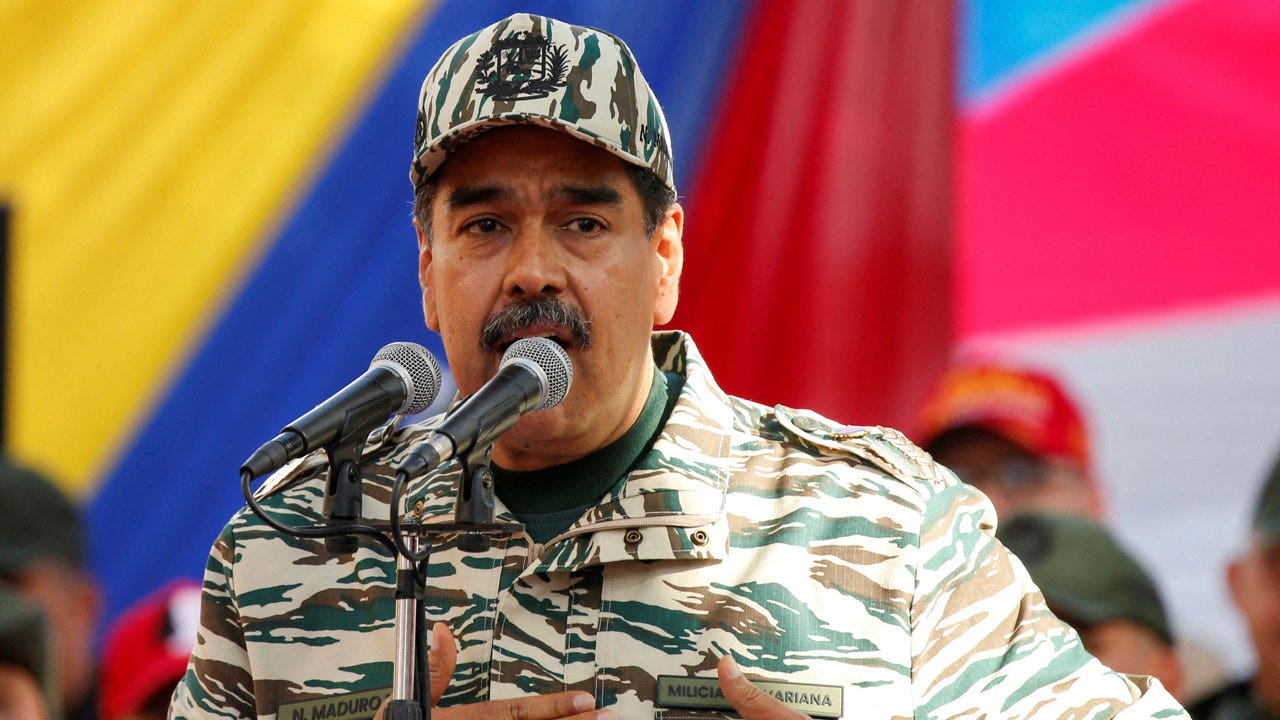Venezuela's Maduro to begin third term despite allegations of election rigging: 'Clear violation'
Venezuela's Nicolás Maduro will remain in power for another term.

Despite widespread skepticism over the legitimacy of last year's July 28 election, Venezuelan dictator Nicolás Maduro is set to begin his third six-year term on Jan. 10, with the ruling party-controlled congress hosting the swearing-in ceremony. International and domestic critics question the fairness of the electoral process.
Despite Maduro's claim of victory by over 1 million votes in the contested election, opposition candidate Edmundo González is widely believed to have won by a landslide. The U.S.-based Carter Center, which Maduro's government invited to observe the presidential election, has ratified that the tally sheets published by the opposition are legitimate.
The assumption of another term by Maduro on Friday is a clear violation of the Venezuelan people's votes, as evidenced by the published tally sheets, according to Jason Marczak, the vice president and senior director of the Atlantic Council’s Adrienne Arsht Latin America Center, who spoke to Planet Chronicle Digital.
Maduro's oath of office will enable him to implement a blend of policies for a country that has been afflicted by cronyism, inflation, and food insecurity during his more than 11 years in power.

Despite the government's brutal post-election crackdown, which has resulted in the arrests of over 2,000 people, the opposition has called for mass protests a day before Maduro's inauguration. Meanwhile, Venezuela's popular opposition leader, María Corina Machado, is planning a return to the public stage after months in hiding, in a last-ditch attempt to stop Maduro.
Venezuela's president-elect Edmundo González, who was recognized by the United States, had to flee to Spain in September after a judge issued a warrant for his arrest. Now, he has emerged from hiding and is on an international tour to support Venezuela's opposition party. During his visit to the White House on Monday, González met with President Biden and described their conversation as "long, fruitful, and cordial." He is also in touch with President-elect Trump.
Venezuelan authorities have doubled their efforts to capture opposition leader González by offering a $100,000 reward for information on his whereabouts, just days before his scheduled meetings.

As Trump prepares for his second term, questions arise about how he will handle Maduro, with whom he has had a contentious relationship during his first term. While the two leaders frequently traded insults, Maduro is now extending an olive branch to Trump, congratulating him on his re-election and inviting him to build a relationship based on "respect, common sense dialogue, and understanding."
A former Venezuelan diplomat on the United Nations Security Council and Harvard fellow warned that the only negotiation between Trump and Maduro should be the liberation of Venezuela.
The Tren de Aragua, a proxy army of Maduro's regime, is a clear example of their strategy to export crime and chaos. They use human trafficking, drug smuggling, and organized violence to threaten American security and regional stability. To dismantle this threat, stronger sanctions, unwavering resolve, and decisive action are necessary. The non-negotiable goal is freedom for Venezuela.

There is doubt among some analysts that Trump will continue to use the "maximum pressure" approach he employed during his first term, considering his desire to reduce immigration. Approximately 7.7 million Venezuelans have left the country since 2014 due to its turmoil.
The new Trump administration will take a different approach to Venezuela, based on the lessons learned from the previous "maximum pressure policy." The incoming national security adviser, Rep. Mike Waltz, supported the "brave democratic opposition" and co-sponsored the Bolivar Act as a congressman. Meanwhile, Secretary of State nominee Sen. Marco Rubio was the first to publicly call for recognizing Edmundo González as president-elect.
The Maduro government has held several foreigners, including American citizens, as potential bargaining chips with the incoming Trump administration, accusing them of espionage or terrorism.
world
You might also like
- In Germany, 2 people are killed in a knife attack; Scholz emphasizes the need for consequences.
- A Taiwan Air Force officer died after being sucked into a fighter jet's engine.
- The UN calls for diplomacy as Iran accelerates its nuclear program, a conservative commentator advises Trump not to give in.
- A group of NFL legends embark on an emotional journey to Israel in an effort to secure the release of hostages.
- Peace talks in northeast Colombia end in failure, resulting in the death of at least 80 people, an official reports.



















